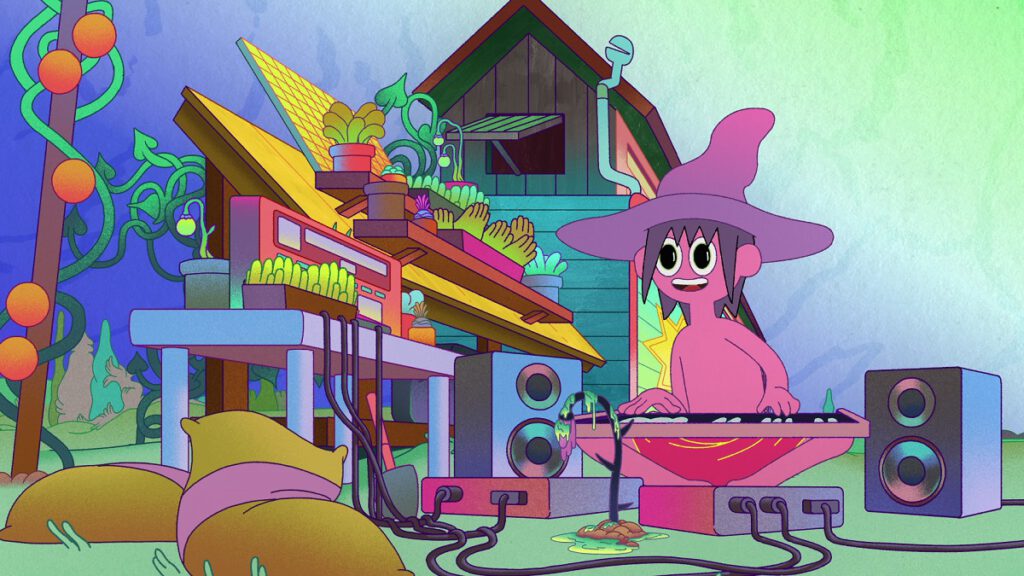Netflix’s latest animated series for adults, “The Midnight Gospel” is about … um, I don’t know where to start. It’s a show that’s designed to rewire the way you take in information aurally and visually, blending podcast culture with trippy, surreal, fantasy animation in a way to create something truly bizarre and often fascinating. “The Midnight Gospel” sometimes feels like it’s a bit too self-indulging in its own lunacy, but we often say that a show is “like nothing else on television” and it’s usually an act of critical hyperbole. Trust me. It’s true here.
To unpack what “The Midnight Gospel” is trying to do, we should start with its origin. Pendleton Ward, the mad genius behind the incredible “Adventure Time” was a fan of Duncan Trussell’s podcast work, which often centered on new ways of thinking about the self, the world, and the universe. Trussell is a fascinating podcaster, someone eagerly invested in his guests and their new ways of thinking, whether they be about mindfulness, meditation, out-of-body experiences, or things I can’t really begin to wrap my brain around. Trussell’s gift is one of honest fascination, which allows his guests to expound on new age ideas with encouragement. He’s a funny guy and a legitimately great interviewer.
Ward’s belief that Trussell could make these “far out” ideas resonate with a wider audience led him to reach out and suggest a crazy collaboration – he would animate the podcasts, but not in a literal way at all. The fantasy images that look like ‘90s Adult Swim that accompany Trussell’s interviews often have absolutely to do with the podcast interview. For example, after years of back and forth, Ward actually delivered a rough cut of what would be the premiere, in which Trussell interviews Dr. Drew (bad timing on that one) but they’re not just sitting in a podcast studio. In animated form, the engaged conversation is conveyed through images of Trussell’s character, a traveler named Clancy, and a president trying to survive a zombie apocalypse.

Are you keeping up? OK, Clancy/Duncan (and some of the podcast guests even accidentally call him Duncan, displaying the fun rough edges of this crazy project) is a being who can travel to different versions of Earth through a simulator, although most of them have been destroyed by “operator error.” There’s a very loose plot about Clancy and his A.I. assistant and sister he never calls back, but the bulk of each episode is Clancy on a planet doing an interview for his space podcast as Ward goes off the rails in his animated accompaniment. So while Damien Echols speaks about fate and his place in the larger universal picture, characters played by him and Trussell wander through a hallucinogenic landscape. It’s often a situation in which the visuals and the audio seem to be directly at odds with each other, but I think that’s the point. These conversations are largely about looking at life from a different viewpoint, so the art that accompanies them is designed to rewire your brain in much the same way. What are you hearing? What are you seeing? How does the disparity between the two bring you to a third place altogether?
It can be legitimately transcendent at times – Ward has so much creative energy that the frames burst with detail and Trussell is a great podcaster in terms of how much he truly engages with his subjects. It can also be damn overwhelming. I don’t recommend binging all eight because the onslaught of new age ideas and hyperactive visuals can be a bit much to take consecutively. Although, if you do have the courage to follow Clancy on this entire journey in one sitting, maybe you’ll find the real meaning of life. Report back if you do.
Whole season screened for review.












